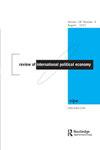跨越式物流:巴西和中国的数字化卡车运输平台、基础设施和劳动力
IF 3.5
1区 经济学
Q1 ECONOMICS
引用次数: 0
摘要
关键的政治经济学分析主要将平台概念化为非生产性经济形式(食利者资本),从每笔中介交易中攫取价值和/或非法提取和资本化用户数据。该奖学金还重点关注全球北方平台在全球南方运营的采掘层面。然而,虽然数量不多,但越来越多的文献正在研究数字平台的生产方面,而重要的数字平台正在南方经济体中兴起。这些趋势引起了人们对平台在跨越式发展中发挥作用的关注。本文考察了全球南方两个主要经济体:巴西和中国的数字卡车运输平台。我们认为,卡车运输平台正在使这些国家混乱的道路运输物流系统发生巨大变化。平台正在集中投资和协调控制。他们利用超过全球北方部署的技术,通过将其纳入算法规则并最大限度地减少官僚主义的低效率,使混乱和低效的运输系统合理化。通过更大程度的集中、协调和合理化,卡车运输平台进一步使其所有者-经营者的劳动力无产阶级化,降低了成本,消除了资本地域流动的障碍。虽然这给工人带来了一些好处,但也让他们以新的方式暴露在变幻莫测的市场规则之下。本文章由计算机程序翻译,如有差异,请以英文原文为准。
Leapfrog logistics: digital trucking platforms, infrastructure, and labor in Brazil and China
Critical political economy analyses have principally conceptualised platforms as unproductive economic forms (rentier capital) skimming value off each intermediated transaction and/or illegitimately extracting and capitalizing user data. This scholarship has also focused heavily on extractive dimensions of global North platforms’ operations within the global South. However, a small but growing literature is examining the productive aspects of digital platforms, while important digital platforms are emerging in Southern economies. These trends draw attention to the prospect of platforms playing a role in leapfrog development. This article examines digital trucking platforms in two major economies of the global South: Brazil and China. We argue that trucking platforms are engendering dramatic transformations of these countries’ disorganised road transport logistics systems. Platforms are centralising investment and co-ordinating control. Utilising technologies which surpass those deployed in the global North, they rationalise disorganised and inefficient transport systems by subjecting them to algorithmic rule and minimising bureaucratic inefficiencies. Through greater centralisation, co-ordination and rationalisation, trucking platforms further serve to proletarianize their owner-operator workforces, driving down costs and eliminating barriers to the geographical circulation of capital. While this offers some benefits to workers, it also exposes them to the vagaries of market discipline in new ways.
求助全文
通过发布文献求助,成功后即可免费获取论文全文。
去求助
来源期刊
CiteScore
9.20
自引率
9.30%
发文量
47
期刊介绍:
The Review of Political Economy is a peer-reviewed journal welcoming constructive and critical contributions in all areas of political economy, including the Austrian, Behavioral Economics, Feminist Economics, Institutionalist, Marxian, Post Keynesian, and Sraffian traditions. The Review publishes both theoretical and empirical research, and is also open to submissions in methodology, economic history and the history of economic thought that cast light on issues of contemporary relevance in political economy. Comments on articles published in the Review are encouraged.

 求助内容:
求助内容: 应助结果提醒方式:
应助结果提醒方式:


